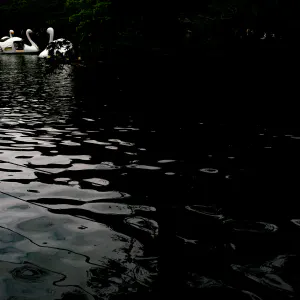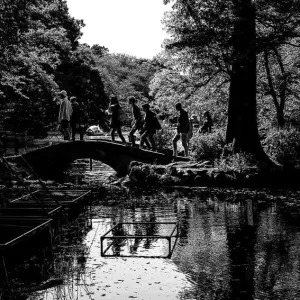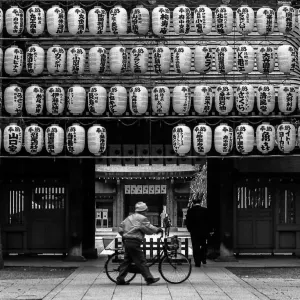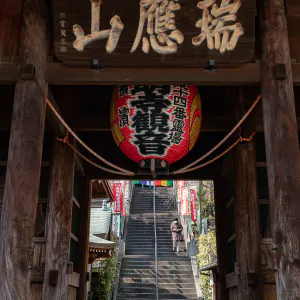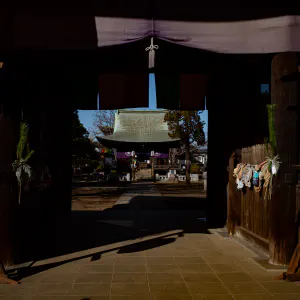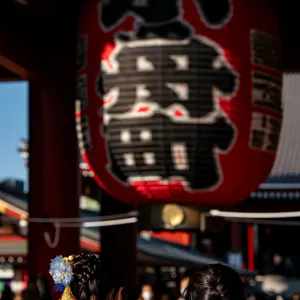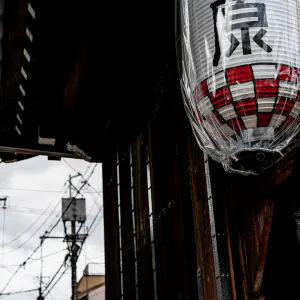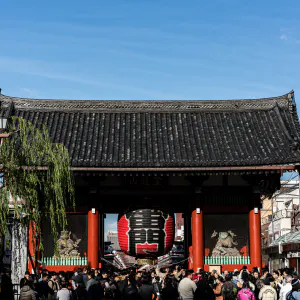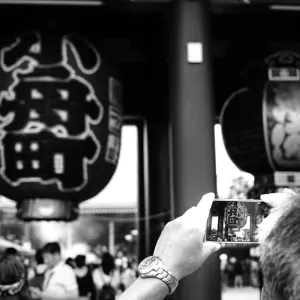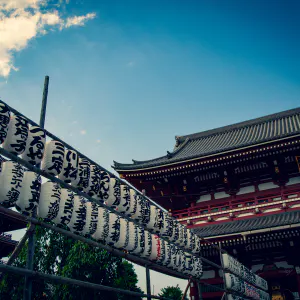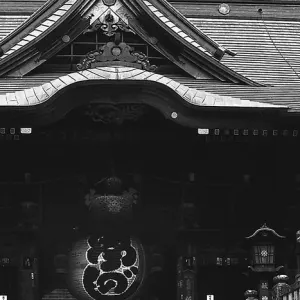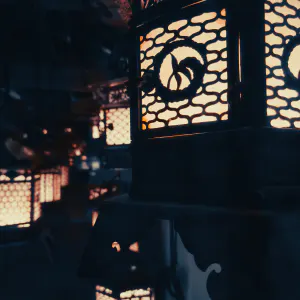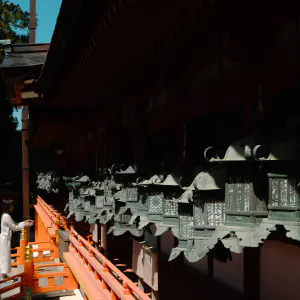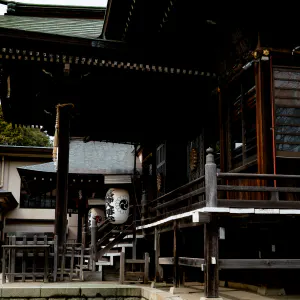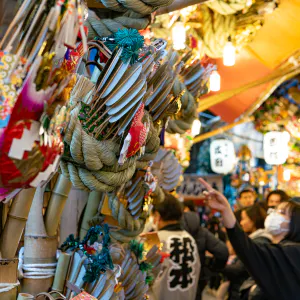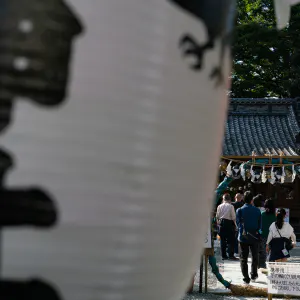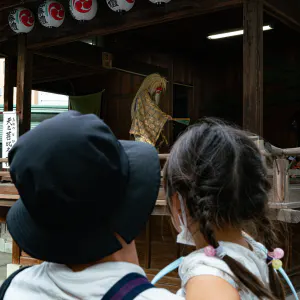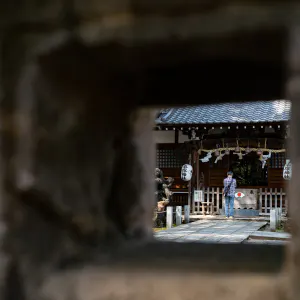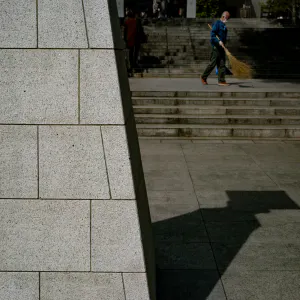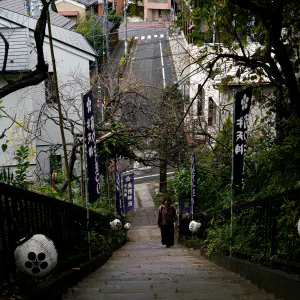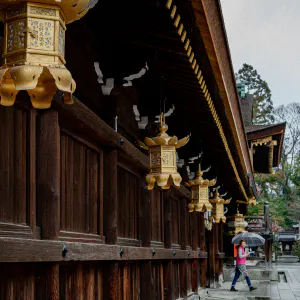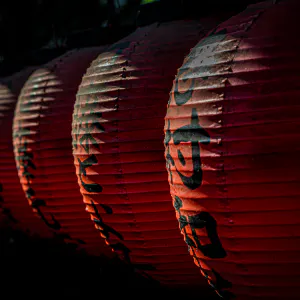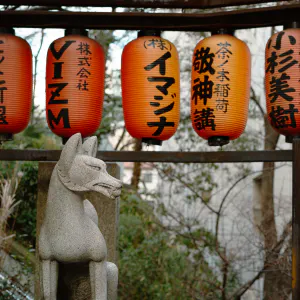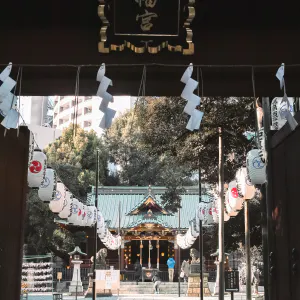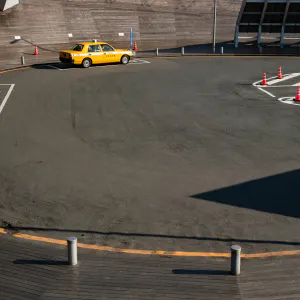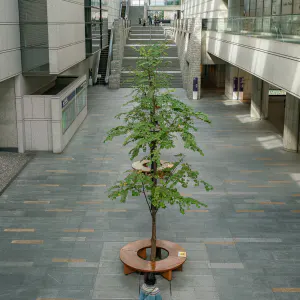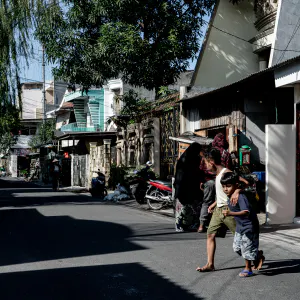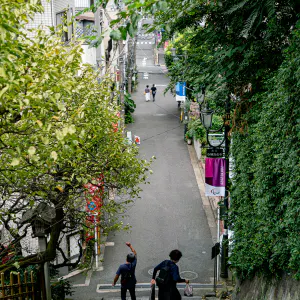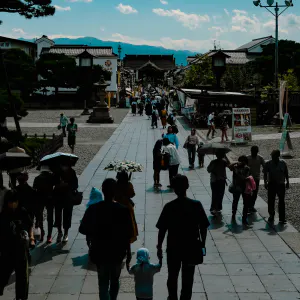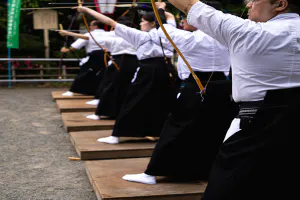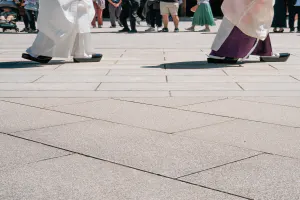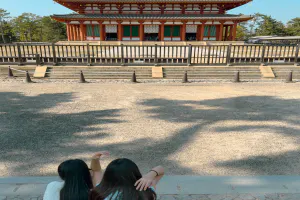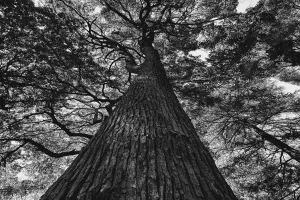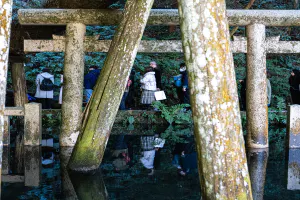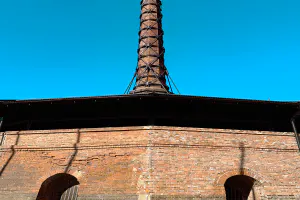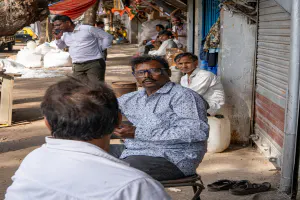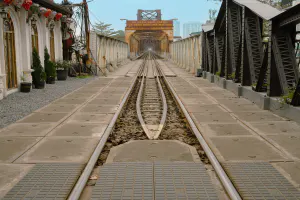Two large, pure white lanterns were hung at the magnificent gate of the Hachiman Daijinja Shrine
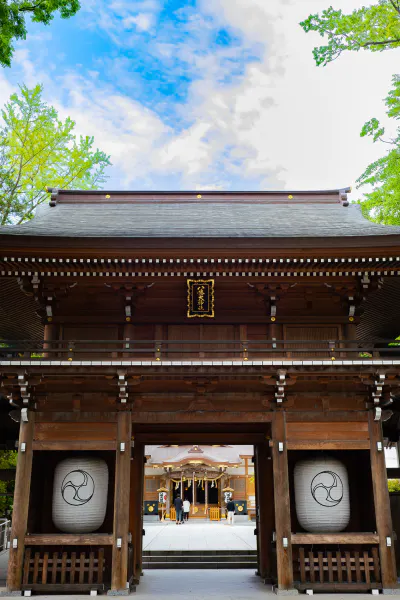
In Japan, which has a strong affinity with animism, many things have been considered yokai since ancient times. While the existence of God is found in all things, negatively understood entities and phenomena are inextricably linked to yokai. Nevertheless, there are many yokai that are not well understood as to which part of the yokai was negatively grasped, such as Narukama, a yokai with a cauldron head and an ema in its hand, and Karakasa-kozo, a yokai with an umbrella. These yokai may have been feared in the beginning, but as time went by, they seem to have become objects of amusement.
Another yokai that is similarly unknown is the lantern ghost. When I visited Hachiman Daijinjya Shrine in Mitaka and saw pure white lanterns hanging at the magnificent gate, I thought of the lantern ghost. I am not sure what was so revered about the yokai, which was so popular that it was even depicted in ukiyoe paintings by Katsushika Hokusai and Utagawa Kuniyoshi. It is true that the lanterns were deformed by the way they split open at the top and bottom, with the broken parts forming a mouth and a long tongue protruding from it. But the lantern itself is a useful item that illuminates one's feet in the dark. If anything, I almost think it is a character from a fable that one should not judge a person by his or her appearance.
| Jul 2022 ARCHITECTURE TOKYO | |
| GATE LANTERN MITAKA SHRINE |
PHOTO DATA
No
12321
Shooting Date
May 2022
Posted On
July 9, 2022
Modified On
August 12, 2023
Place
Mitaka, Tokyo
Genre
Architectural Photography
Camera
SONY ALPHA 7R II
Lens
ZEISS LOXIA 2/35
